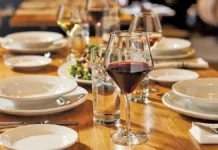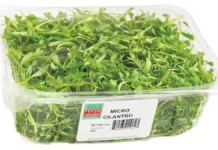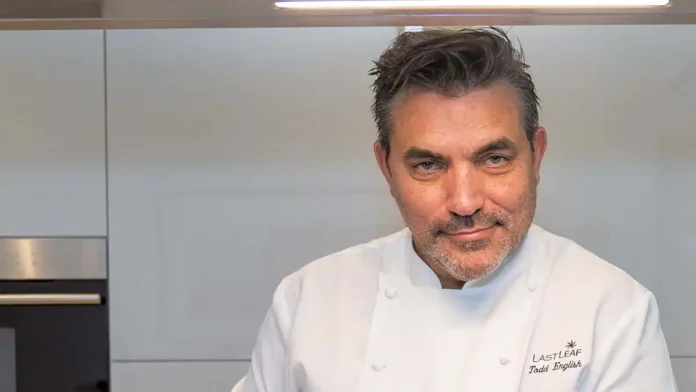
Chairman & Master Chef, English Hospitality Group
Just named Las Vegas Food & Wine 2022 Chef of the Year, Todd English is a famed restaurateur, internationally acclaimed Chef, television host, and Best-Selling author with a multimillion-dollar hospitality empire.
His English Hospitality Group recently opened The English Hotel in the Las Vegas Arts District, which includes his world-class restaurant, The Pepper Club. This latest venture adds to his worldwide restaurant empire, including Las Vegas and the Bahamas with Olives, Todd English P.U.B. in Birmingham, Figs in Boston, BlueZoo in Orlando, Tuscany in Connecticut, and MXDC in Washington, DC.
In addition, English is behind Target’s new Chef Todd English cookware line, partnered with Nutre Meal Plans to deliver healthy & delicious meals, created a new cannabis-infused food line with LastLeaf, and is currently developing new restaurants in cities across the globe.
The four-time James Beard Award-winner has established one of the best-known restaurant brands in the world, publishing critically acclaimed cookbooks and producing and hosting his own EMMY Award-nominated PBS TV show “Food Trip with Todd English”. English has been named Nation’s Restaurant News “Top 50 Tastemakers”, awarded Bon Appetit’s “Restaurateur of the Year” and selected as one of the “50 Most Beautiful People” by People Magazine.
English is also a celebrated philanthropist, often hosting and acting as Chef for high-profile entertainment and charity events. He has been the Executive Celebrity Chef for MTV’s Video Music Awards and has hosted events for The Superbowl, Sundance Film Festival, Fashion Week, The Tony Awards, NASCAR, The Masters, US Open, and Dinner in White.
He is also very involved with several local and national charities, including Susan G. Komen, Big Brothers of America, the Anthony Spinazzola Foundation, Community Servings, Share Our Strength, Boys and Girls Clubs, Volunteers of America, Food Bank of NYC, Make a Wish, Autism Speaks, City Harvest and numerous others. Most recently, Todd formed The Wendy English Breast Cancer Research Foundation in honor of his sister.
Like many top performers, English is an example of both successful reinvention and as we came to call it through the Pandemic: “Pivoting”. With that in mind, Total Food Service wanted to share Todd’s unique journey with the foodservice and hospitality communities.
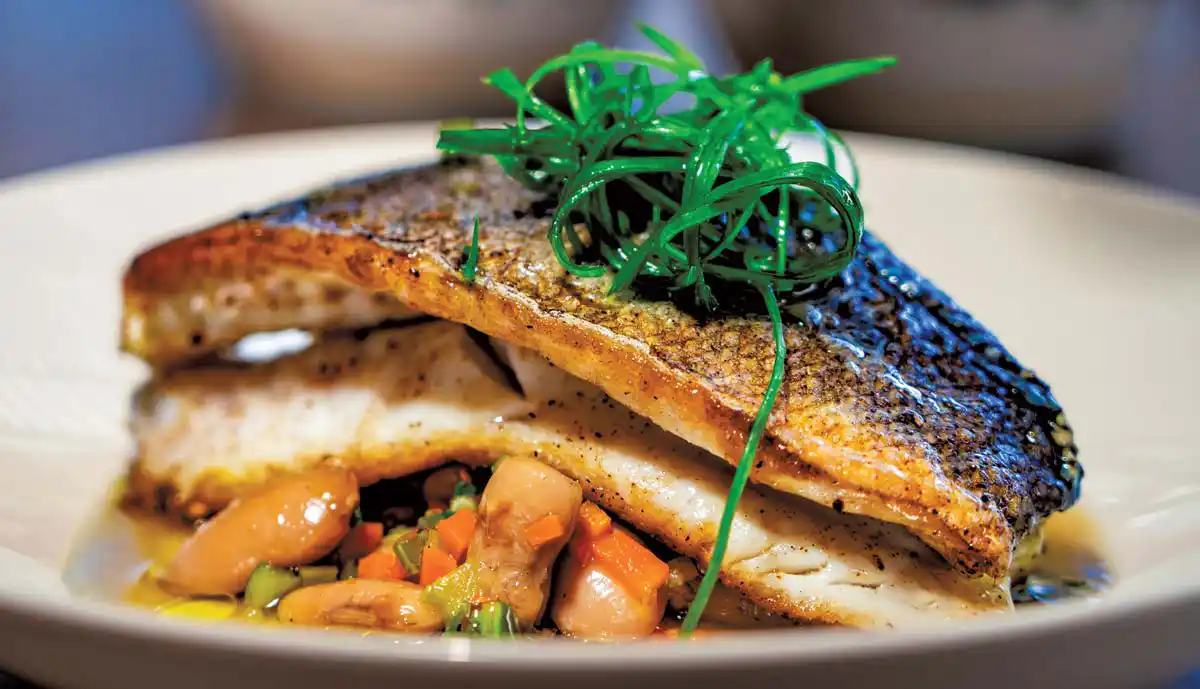
You’ve been around for so long that you actually need to be reintroduced to an entire generation that didn’t even know you as a famous Boston chef and restaurant owner.
When I started my career, it wasn’t cool to be a chef, no one even knew about it. I had the opportunity to work with Juila Child on her radio show in Boston. She had this incredible passion with the stories that she told on the show about her and her husband in France.
I got to know Julia pretty well. She would invite me to have dinner with her and some rather amazing guests. I remember, eating dinner with her and Charlie Trotter. She commented that it’s interesting how being a chef has always been a blue-collar profession. It’s listed in Washington, DC, as a blue-collar profession. I’m convinced that her vision for what a chef could become: white-collar and someone who wasn’t hidden away in the kitchen became a reality for many of us. It’s interesting how even that throwaway seat in the kitchen next to the bathroom would go on to become the most wanted seat in the house: “The Chefs Table”.
Frankly, we don’t think anybody really cared who the chef was in those days.
No, they really didn’t. As long as you got your prime rib you were good. I think it was really phenomenal how it all of a sudden changed so much for me. I got into it because I love to cook and I went to Italy because I love to cook, and I went to France because I wanted to learn everything. I used to read Escoffier like it was my Bible. I would practice mushroom cuts in my room, in my dorm. Crazy stuff like that.
To show you how much things have changed, those five “Mother” sauces that were essential in the 1970’s and 80’s don’t even exist anymore.
Where are you from originally and where did you go from there?
I was born in Texas. We lived in Nebraska, Oklahoma, and Minnesota, with my Midwestern father. Then we moved to Atlanta. My Mom and I would then move to Connecticut and I fell in love with Pepe’s Pizza in New Haven. Oh my God this is the best thing I’ve ever eaten. And then we go to Louis Luncheonette for burgers. It was funny, later on in my life I actually did a whole show on pizza for PBS. My favorite pizzas around the country and we went to Pepe’s where I made the white clam pizza 40 years later. That’s pretty cool.
Where did you end up studying? Where did you go to school? And then how did the career blossom?
I love baseball and soccer. Those days, I liked sports and you could actually play two sports. I went to Guilford College in Greensboro (NC) on a full scholarship for baseball and soccer. I was being recruited by a lot of the bigger schools, but I just wanted a smaller experience to start, that was 1978. I played a couple of years, got hurt, took the summer off to rehabilitate, but in the meantime, I was putting myself through college, so I had to get a job. I started cooking and I worked for a guy named Don Browning in Atlanta at the Tower Place Hotel. I worked in the Rib Room; it was the classic American steakhouse. But the cool thing about him was he also had a little restaurant there. He had come out of the Waldorf Astoria Hotel and studied in Austria. So, I really had the chance to learn and make pate and stocks. Along with learning all of the classics, there were these southern ladies that were making these amazing Southern foods. I got really excited and I used to love going to work, it was like they always had a lot of other stuff going on. I was hanging out where they were doing all the fun stuff. I eventually worked in there with Don and then he recommended me. One day he looked at me and said ‘You love this don’t you? So, you should go to The Culinary Institute of America.’ I say what’s that? No one knew it, there were no cooking schools, that was the only one. I guess there was Le Cordon Bleu in Paris.
American kids didn’t go there, right?
No, Americans didn’t go there. When I applied; it was a year plus wait to get in. I didn’t go back to baseball, the coaches were so pissed at me, but I went in and said, I’m going to just try this. I had hurt my back pretty bad; I was still in pretty bad shape. Those days nobody did rehabilitation, there was really nobody to help.
Sports surgeries were not as advanced then, none of that stuff.
No. It turned out to be a fracture, it healed, but it took a long time. CIA, oh boy, this is what I’m going to do for the rest of my life. I was 20 years old, I said, this is for me. I didn’t know why or how. As soon as I got into the CIA, I jumped in head first. I immediately joined the Saucier Club and every other club I could find on campus. I was the president of one of the clubs, it was after school activities. It was tough to get in, it wasn’t automatic. Ferdinand Metz then came to the school and took me under his wing. I was a pretty good tennis player, he played tennis, and he will always drag me out of class to play tennis with him, I used to kick his ass. I then met a gentleman from Restaurant Associates, who gave me an interview in New York back in 1981. I landed there, and it was full of American chefs. It’s like, Charlie Palmer, Rick Moonen, David Bouley and the list goes on and on.
Sounds like a Hall of Fame lineup.
We were all just learning to cook. Restaurant Associates ran a very French kitchen, just crazy stuff, it was wild. I told the chef I wanted to go to France. Meantime, I had met Tony May and asked him who I should look up in Europe. I’m 22, I get on the plane, you could carry your knives with you in those days. Eurail pass and $200. I got a job in France working for Roger Verge. Then I went to Italy and worked for Nadia Santini at Dal Pescatore, which was the number one restaurant at the time.
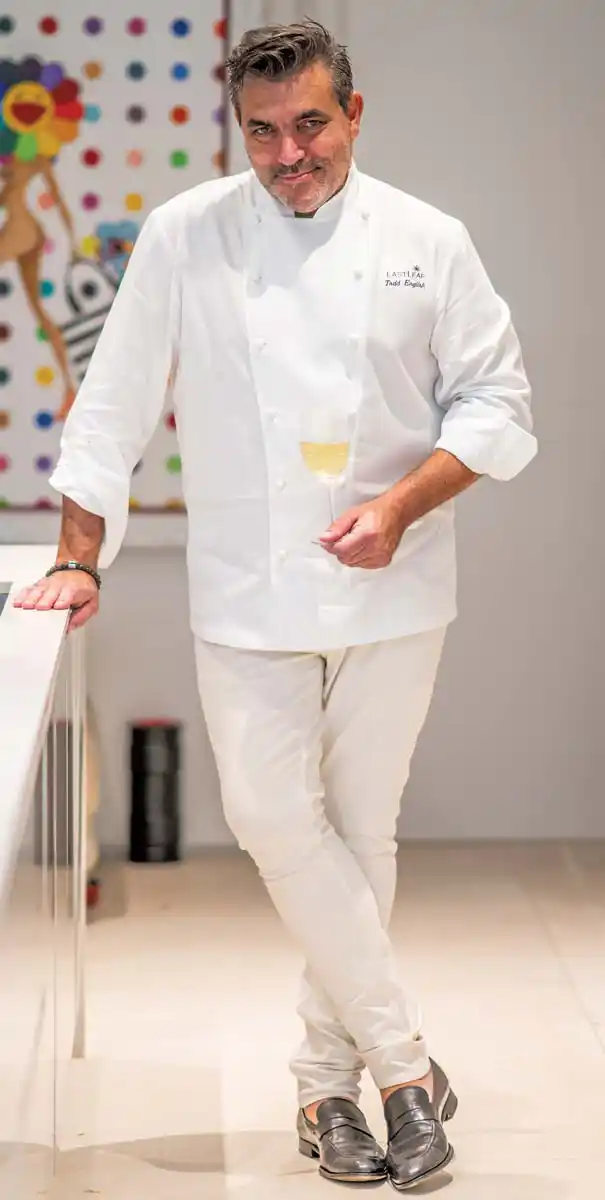
What did you take away from the whole experience in Europe?
I was so blown away. It was the era of making basil sorbet. No one was doing that, I was like, wow, oh my God. That’s genius. And I did learn the feeling of cooking, the aesthetics of using the ingredients so using seasonal ingredients and precision. One of the things I always realized especially when I watched the Italian women cook, I always noticed something very interesting, cooking is about timing, especially when it’s simple like Italian cooking. They know exactly when it’s perfect, put more pasta water and toss it. But when it’s ready, it’s ready. And they know there’s that 20 second window between it getting overcooked to it being sloppy and not being cooked. It’s really interesting. Like a musician that just knows music.
Then you came back here. And does all of this happen right away? What happened?
Oh no, I got a job in Boston at Michela’s when I was 25. I was supposed to go in as a sous chef. The day before the restaurant opened, the chef quit, and the owner Michela looked at me and said, you’re the Chef. It was intense, I was roasting radicchio, I was spit roasting rabbits and I was making bread. We were making bread rolls twice a day in the brick oven. We had a whole system, a beautiful grissini two and a half feet, three feet long on the table as you sat down, vanilla, parmesan cheese.
Stuff you’ve never seen before?
No one had ever even seen risotto really in Boston. I’ll never forget Michael Dukakis, who was the Governor of Massachusetts at the time, and John Kerry used to come in on a regular basis. I remember this conversation with Kerry about cooking with local products like radicchio because it would be good for local farmers. Way ahead of its time. It inspired me to go find a local guy that foraged mushrooms and to see what we could get from our local farms. Local resourcing.
You were farm to table before there was even farm to table?
Between the idea of using local New England farmers and what I had seen in Europe, I really developed an appreciation for ingredients. I drove my pasta chefs nuts because we might be playing with five to eight different pastas with the best two or three ending up on the menu.
What led to you opening your own place?
It was one of those times in life when personal and career agendas intersected. My wife at the time Olivia lost a baby at birth. It kind of brought life to a screeching halt and I rethought what I was doing. I also wanted to share the Mediterranean style cuisine that we had developed at Michela’s in a more casual setting. I just knew it was time to open my own place. I got pushed to do it as well by some of our patrons. As the top of that list was a banker, Jack Seidel from U.S. Trust and his wife Barbara, who were regular customers and gave me the type of constructive feedback needed to open something new. Even Senator Ted Kennedy and his family kept pushing me to take the plunge. It resulted in an amazing 25 year run that also built a footprint that expanded to New York and Tokyo.
Then what was the vision after that?
I wanted to go to New York. My family’s in New York. It was just in me that I had to prove to myself that I can make it in New York. I opened a place in New York and it was Barry Sternlicht who was the brains behind Starwood Hotels that made it happen. It worked because I understood what was needed for a restaurant to succeed in a hotel from what we had accomplished at the Bellagio in Las Vegas with Steve Wynn.
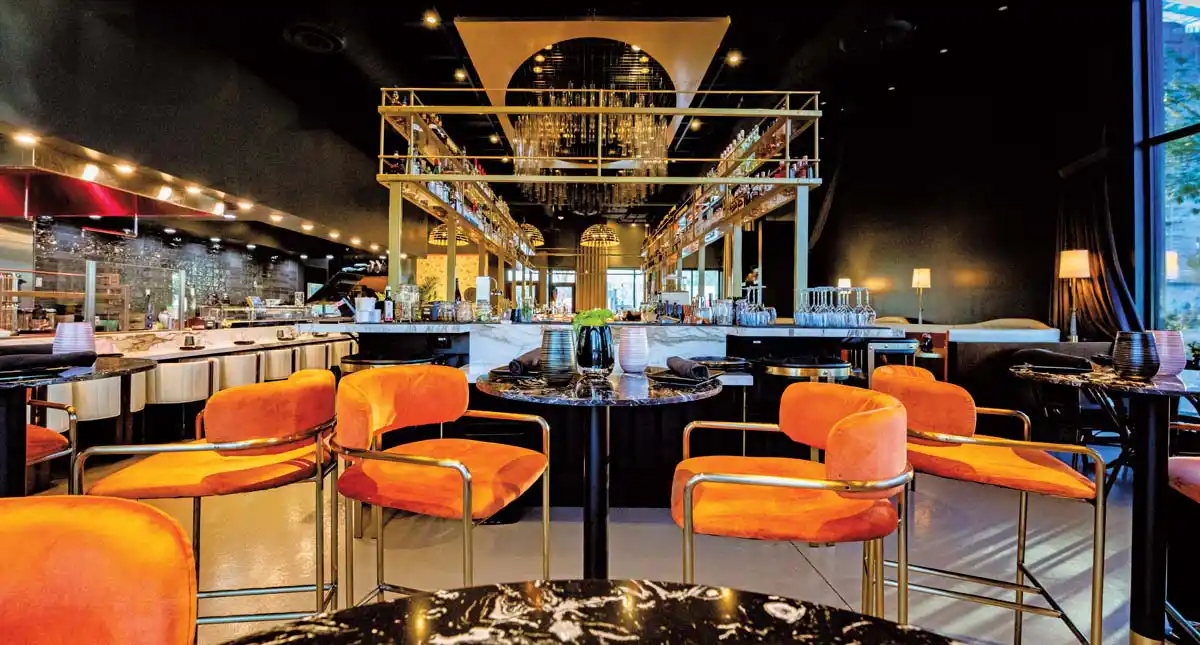
How have you kept the Todd English brand growing over such a long period of time?
It’s all about staying fresh by keeping that edge and thinking outside the box. You need to find out what’s next and be fearless as you go after it. You need to continue to educate yourself to understand what’s next. I’ve got my Master’s in food, but I will forever be getting my PhD because there’s so much to learn.
Your Food Hall business continues to grow.
Funny how things happen. I have actually been brought into look at the Palm Court in the lobby. Somehow, somebody from their team said, ‘while you are here could you look at our space in the basement?’ It was actually an old laundry room from the days when hotels did their own laundry. Right away, when I saw it, I thought about the great Food Halls I had seen in Tokyo and Paris. Next thing I knew, we were in the Food Hall business.
Talk about moving to Las Vegas and the opportunity there? How has Vegas changed and evolved?
Las Vegas never ceases to amaze me. It continues to grow and restaurants are so flourishing and people are here and I don’t think it’s going anywhere. As the famous quote says, the show must go on and I had three projects in the works and I was also building a house there. I had been doing business in Las Vegas for a long time opening with the Bellagio and then the Food Hall. In 2020 business was on pause as the world opened back up. It made sense for me to move to Las Vegas. I’ve discovered there is so much more to Vegas than the strip. The English Hotel is in the Arts District and we have an Asian-Ocean-Fusion and Sushi bar concept called The Pepper Club. We like to call it the “Soaring 20’s”.
All photos courtesy of English Hospitality Group
To learn more about Todd English and his restaurants, visit the EHG website.






















